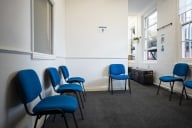You have /5 articles left.
Sign up for a free account or log in.
Within weeks after colleges around the country closed their campuses and shifted to remote learning as COVID-19 descended last spring, students and lawyers sprang into action, filing lawsuits seeking reimbursements of tuition and fees on top of the housing and dining refunds that many institutions granted. They argued that the virtual learning they were getting was inadequate given what they had paid, even as college and university leaders said their institutions had done their best to pivot in a crisis and allow students to continue their educations.
On Thursday, a federal judge -- in what appears to be the first of last spring's cases to be adjudicated -- largely dismissed a lawsuit in which a group of Northeastern University students sought refunds of their tuition and fees after the university closed its campus and shifted to remote learning last spring.
In his ruling, Judge Richard G. Stearns granted Northeastern's motion to dismiss the class action on all of the students' demands except for the possible refund of the campus recreation fee, which he agreed could proceed.
The two named plaintiffs, Thom Gallo and Manny Chong, undergraduate and graduate students, respectively, had paid Northeastern between $23,400 and $26,100 in tuition, plus several hundred dollars in fees for the spring term. Chong petitioned the university for a refund based on the "pedagogical inferiority of online instruction," and when that was rejected, he and Gallo filed a class action on behalf of similarly situated students, saying that the university either breached its contract with them or engaged in unjust enrichment.
The judge, citing the annual financial responsibility agreement that students sign with Northeastern, concluded that the university did not commit to providing in-person instruction, invalidating the breach-of-contract claim. Stearns dismissed the claims for refunded student fees because, he said, students pay those fees "to 'support' certain facilities during terms for which those students are enrolled in classes, not to gain access to any on-campus facility or resource."
Stearns permitted the recreation fee claim to proceed because that fee gives students the option to attend home sporting events and to use fitness facilities that were unavailable to them when the campus closed.
The University of Utah called it a "circuit breaker." Many campuses have imposed quarantines, either on individual residence halls or campuswide. York College of Pennsylvania is taking a different approach, imposing what it calls an on-campus "fall break" for the next two weeks to combat a "recent small uptick in individuals who have been identified as close contacts of several COVID-19 positive students."
The approach is less restrictive than many quarantines, which often accompany pivots to entirely virtual learning and result in closures of sports facilities or libraries. In York's case, students will continue to take hybrid courses, and the library and fitness center will remain open for students.
But sports practices will be called off, meals will be carryout only and students will be prohibited from entering residence halls that aren't their own. York says residential students shouldn't leave campus except to work or run essential errands.
"These further restrictions may not be welcomed; however, they are necessary to avoid taking actions that are more stringent," President Pamela Gunter-Smith wrote. "I hope that this break will provide the opportunity for us to reset and return to our normal operations at the end of this period of time."
The University of Illinois at Urbana-Champaign has won plaudits in some quarters for its response to COVID-19. But this week it acknowledged that one of its prime tools for fighting the virus -- a saliva-based COVID-19 test that it has boasted is faster and more cost-effective than other methods -- does not have the Food and Drug Administration approval that Illinois officials asserted, WCIA in Urbana, Ill., reported.
A university spokeswoman said statements that the saliva-based test had earned an emergency use authorization from the FDA resulted from a misunderstanding between the university and the agency.
Finlandia University this week joined the list of institutions suspending in-person classes to try to slow the virus's spread. Following decisions by Merrimack College and Michigan Technological University on Sunday, Finlandia said it would shift to virtual learning through early next week in response to a sharp rise in COVID-19 cases in the neighboring communities.









